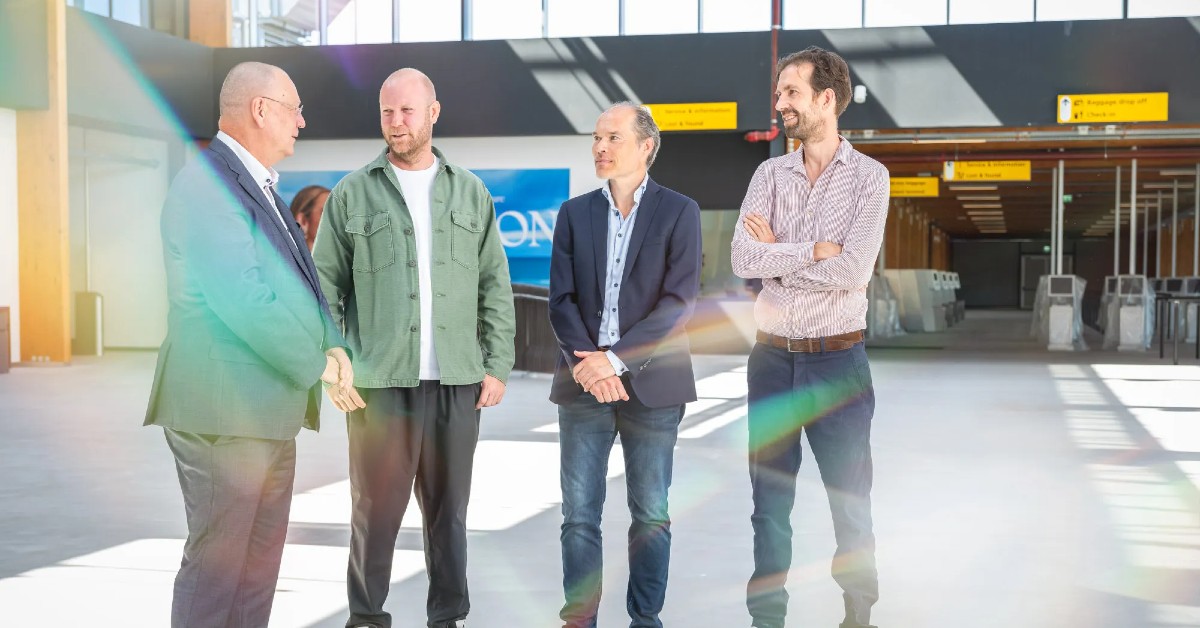One of the reasons startups thrive is because of the fresh perspective and possibilities that they bring to the table. There are loads of inspiring startup stories that can guide budding entrepreneurs and help them learn from their successes and failures. Karhoo is a prime example of one such interesting startup. For those unaware, Karhoo is a London-based mobility startup for aggregating cabs and comparing their prices, and it was founded in 2014.
Unfortunately, the startup ran out of cash in 2016 and went into administration. It was then acquired by RCI Bank and Services in January 2017 and is now a sub-organisation under the Flit Technologies group. As one would have guessed, Karhoo has gone through many ups and downs but it’s still at it. We sat down with Boris Pilichowski, the Co-CEO at Flit technologies/ Karhoo to know more about what exactly happened and what’s next.
The old vs new Karhoo
Pilichowski says the first version of Karhoo was B2C, and while the concept of aggregating taxis was sound, they realised their model needed to be more B2B2C platform. This new platform that the company now follows and operates on is called the Kargoo Mobility Exchange, which is a unique concept when compared to the one employed before.
“With Nicolas Andine, my partner, we started the company from broke because the first company went into administration. We restarted the company from scratch, went through the administration process and were then able to restart the startup with a different stance,” says Pilichowski, elaborating on how the new Karhoo is entirely different. “While the aggregating feature from the aggregating suite is similar, but the way we built it was very different. It’s a different type of technology, a distinct proposal, and a very original shareholding structure. As it is a big project, we wanted to do it right and with the best backing.”
Karhoo’s partnership with SNCF
Karhoo is rapidly expanding its services, and its latest bid is a partnership with French rail group SNCF Mobilités. Under the partnership, travellers on SNCF’s high-speed trains will be able to book first and last mile vehicles like a taxi or a private hire. The new service is named “Mon Chauffeur” and can be availed via the OUI.sncf app or through the company’s website. It is now available for all passengers and will be available in 25 stations across France and will be extended throughout this year.
European startup award for mobility 2019
Karhoo bagged the gold prize at the European startup award for mobility 2019. Winning the accolade signifies how the startup reinvented itself to be successful. After the rough patch of going through administration, the startup claims to be the largest mobility exchange with over 1500 fleet signed up from all around the world. Some of these fleets are deployed in Europe, they are also present in the US and the Middle-East. Many new fleets are also now joining the company’s mobility exchange, which it says is its first achievement.
The company is now collaborating with large event partners that are in the travel, assistance and corporate sector. The services offered by the startup are available in various electronic formats and can be accessed via web interfaces, an app or with an API. The company has already bagged 20 large contracts with event partners and is keen on continuing its growth after bagging the European startup award for mobility this year.
Current market position and competitors
Karhoo says it has a strong presence in Europe since it’s fleets are from all across the region. Additionally, it has a significant market share in the UK, France, Spain, and other countries in the Benelux. Since Karhoo is a global company, it is free to establish services anywhere in the world, and it has different levels of market share in the regions it’s currently operational.
As for the competition, Karhoo doesn’t comment on its rivals but says it is leading the pack since the field it operates in is a new sector. Surely some companies are coming in to do what Karhoo is doing. However, Pilichowski says they don’t work at a large enough scale to be recognised as a true competition of Karhoo.
Operation challenges and expansion plans
The Karhoo Mobility Exchange is a large platform and Pilichowski says that the most challenging bit was the complexity they faced while building it. The company had the resources to build it, but speed and optimisation of the service are difficult to maintain. However, the startup keeps working on optimising its process to provide the best possible service for its clients.
When asked about its expansion plans, Karhoo says it will be expanding its services in the US and will be scaling up in Europe. It has already established a foothold in Asia and is in talks with a mobility player to launch its services over there. As for the US expansion, Karhoo already has a team in the country and has already fleets that have signed up on its platform, along with demand partners. This means it has both sides of the equation and is planning on launching the service later this year.
Expanding a platform or a service requires money, but Karhoo isn’t looking for funding at the moment. The company says it has the resources it needs and is happy with its current pace of growth and development, and the current shareholder. In fact, Karhoo can be called a young scaleup as has more than 150 members.
How Karhoo differentiates itself from others
It is not surprising that companies keep trying to get the bigger chunk of the market for themselves in this competitive era. This is where Karhoo establishes itself as being different from others. The company’s business model respects the current players in the mobility space, and that’s of utmost importance as the company doesn’t come in and tries to push out other fleets in a country. It instead works with taxis, VTCs and fleets to get them onboard on Karhoo’s global platform.
On the other hand, other similar startups try to establish a monopoly in attempting to eliminate the competition. “This business model is going to work in many different places around the world. This is because people actually like aggregation, comparison and choice of different providers. They want to be connected to different fleets, different service and different options,” says Pilichowski. The company contributes the same reason for being able to establish itself as one of the leading players in the mobility segment. The company plays by the rules and works with traditional fleets as well.
Stay tuned to Silicon Canals for more updates in the tech startup world.
https://siliconcanals.com/promoted-content/meet-the-three-innovative-european-startups-that-have-been-honoured-with-the-future-hamburg-award/










01
From telecom veteran to Dutch Startup Visa success: The Jignesh Dave story